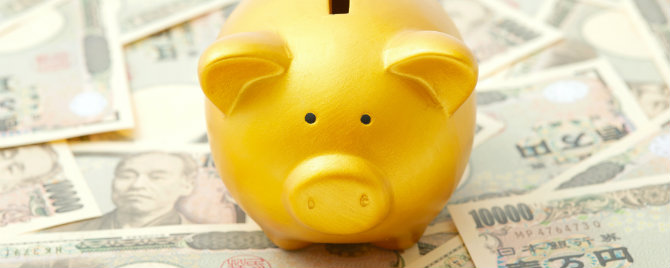Japanese households are well known for their preference for cash1, which represents the majority of their financial assets. On the surface, this seems like a rational choice in an economy experiencing persistent deflation. Moreover, an aversion to risk similarly appears rational in the wake of Japan’s traumatic equity and real estate market collapse in the late 1980s, from which the country still has not recovered. But dig a bit deeper, one can find that Japanese households were stockpiling cash well before the 1990s. This blog explores Japan’s preference for cash—how much households really hold and what researchers believe to be the main drivers. A better understanding of these dynamics might help policymakers design more appropriately targeted financial sector infrastructure and policies.
So, How Much Cash?
As of September 30, 2018, Japanese households had JPY 1,860 trillion (roughly USD 17 trillion) in total financial assets; over 50 percent was held in cash. Compared to other advanced economies, Japan’s financial assets skew heavily toward cash and are relatively shy on higher-risk assets. In the U.S. and Euro Area, for example, cash accounts for 14 percent and 33 percent of total financial assets.
What factors account for Japan’s obsession with cash? A good place to start is Japan’s economic history: decades of low or negative inflation, and a dramatic asset bubble collapse in the late 1980s, help explain why cash looks so attractive to Japanese investors.
Indeed, some of the rationales behind Japan’s cash preference are self-evident. For one, Japan has experienced low or negative inflation for the vast majority of the past two and a half decades. During Japan’s infamous “Lost Decade” (1991 to 2001), the annual change in headline consumer prices averaged a meager 0.8 percent. Stagnant domestic prices continued to be a fact in the 21st century. Since 2001, annual inflation has averaged below 0.1 percent, with outright deflation in 10 of the last 17 years. A deflationary environment creates a strong incentive to hold cash, since the same amount of money is expected to buy more tomorrow than it can today. In addition, the late-80s real estate and equity market crashes continue to hold an important place in investor mentality. Following a peak in 1989, Japan’s benchmark equity index lost nearly half of its value in one year. The equity market stumbled over the following decades, stymied by domestic bank losses, the 1997-98 Asian Financial Crisis, and the 2007-08 Global Financial Crisis.


Comments are closed